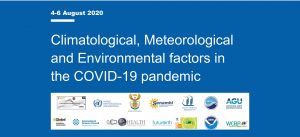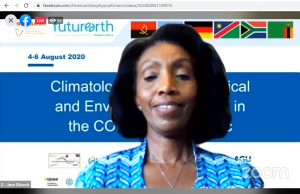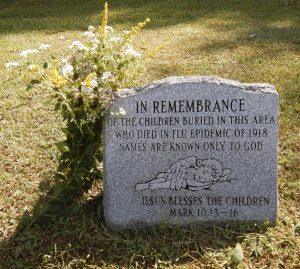
The international virtual symposium on climatological, meteorological and environmental factors in the COVID-19 pandemic was held from 4 to 6 August. This e-symposium was hosted by the World Meteorological Organization (WMO) and its international scientific partners which include Future Earth. It was officially opened by the South African Minister of Higher Education, Science and Innovation, Dr Blade Nzimande. In remarks delivered on his behalf by Daan du Toit, the Deputy Director-General of the South African Department of Science and Innovation, Dr Nzimande highlighted that the sharing of experiences, expertise and open access data is fundamental to addressing the challenges of the pandemic. He emphasized the importance of international cooperation and the need for scientific evidence in curbing the spread of the pandemic and informing decision making. He further reiterated the importance of international solidarity in addressing and defeating global challenges that include the COVID-19 pandemic, energy security, food security, climate change, inequality and poverty. Dr Nzimande reminded participants that ‘international solidarity’ is the current theme for South Africa’s Chairing of the African Union.
High-level speakers at the opening ceremony included Prof Petteri Taalas –Secretary-General of WMO, Dr Gilberto Câmara – Secretary-General for Group on Earth Observation (GEO) and Dr Soumya Swaminathan – Chief Scientist for the World Health Organisation (WHO). These key speakers discussed the current impact of the pandemic to both livelihoods and economies and also considered future impacts. They advocated for open access data sources, transparency and reproducibility as pivotal in addressing global challenges. These key speakers also clamoured for concrete actions from the event’s deliberations and enhanced international co-operation to bolster global solidarity.

SASSCAL Executive Director Dr Jane M Olwoch pictured during the opening ceremony of the e-symposium
The SASSCAL Executive Director Dr Jane M. Olwoch, a steering committee member of Future Earth’s Regional Office for Southern Africa (FEROSA) and a member of the symposium’s scientific committee chaired the first keynote session of the opening ceremony. The theme of this session was Understanding the Dynamics. Dr Olwoch in introducing the session shared two quotes to highlight the importance of the e-symposium and encourage the scientific community to ‘search’ and inform response plans and decision making. She shared a quote from Thomas Wolfe’s classic 1929 novel, Look Homeward, Angel. “Surely, gravestones can speak about people who once walked the earth, of their joys and hopes and hardships, reminding us that they were no different than we who still live. Gravestone inscriptions also reveal the demography and epidemiology of earlier ages, the person, place, and time of life and death”. She added that 100 years later in 2018 David Morens and Jeffery Taubenberger in their article concerning the 1918 to 1919 influenza pandemic concluded that “A century after the world’s deadliest pandemic, we are still energetically studying it, and we appear to stand at the threshold of discoveries that will one day save millions of lives if, or rather when, another highly fatal influenza pandemic emerges. “We are still searching, but we are certainly not lost as we confront COVID-19 in 2020”, Dr Olwoch stated. She concluded by highlighting the importance of platforms such as the e-symposium as essential for sharing the outcomes of various multidisciplinary ‘searches’ that are envisaged to ‘one day save lives’.

One of countless gravestones and monuments remembering victims of the 1918–1919 influenza pandemic (Copywrite @ David M. Morens)
The keynote speakers for this session were Dr Aaron Bernstein – Interim Director of the Centre for Climate, Health, and the Global Environment – Harvard University and Dr Rachel Lowe – London School of Hygiene. They emphasized the need for people to rethink about how they engage with nature and the interconnectivity of systems. They also advocated for the protection of nature which would in-turn protect human lives and livelihoods.
The e-symposium was attended by over 600 participants from 63 countries.




